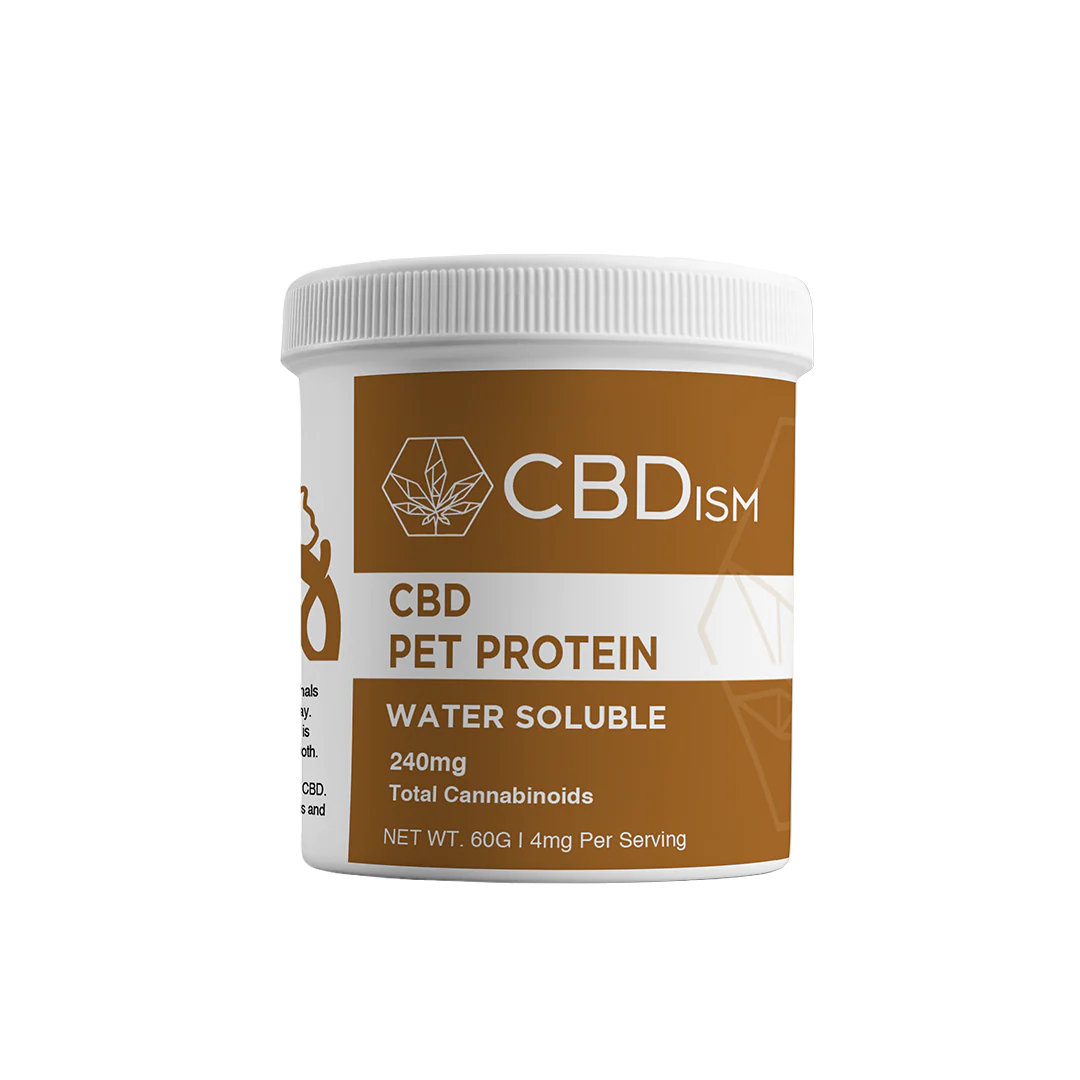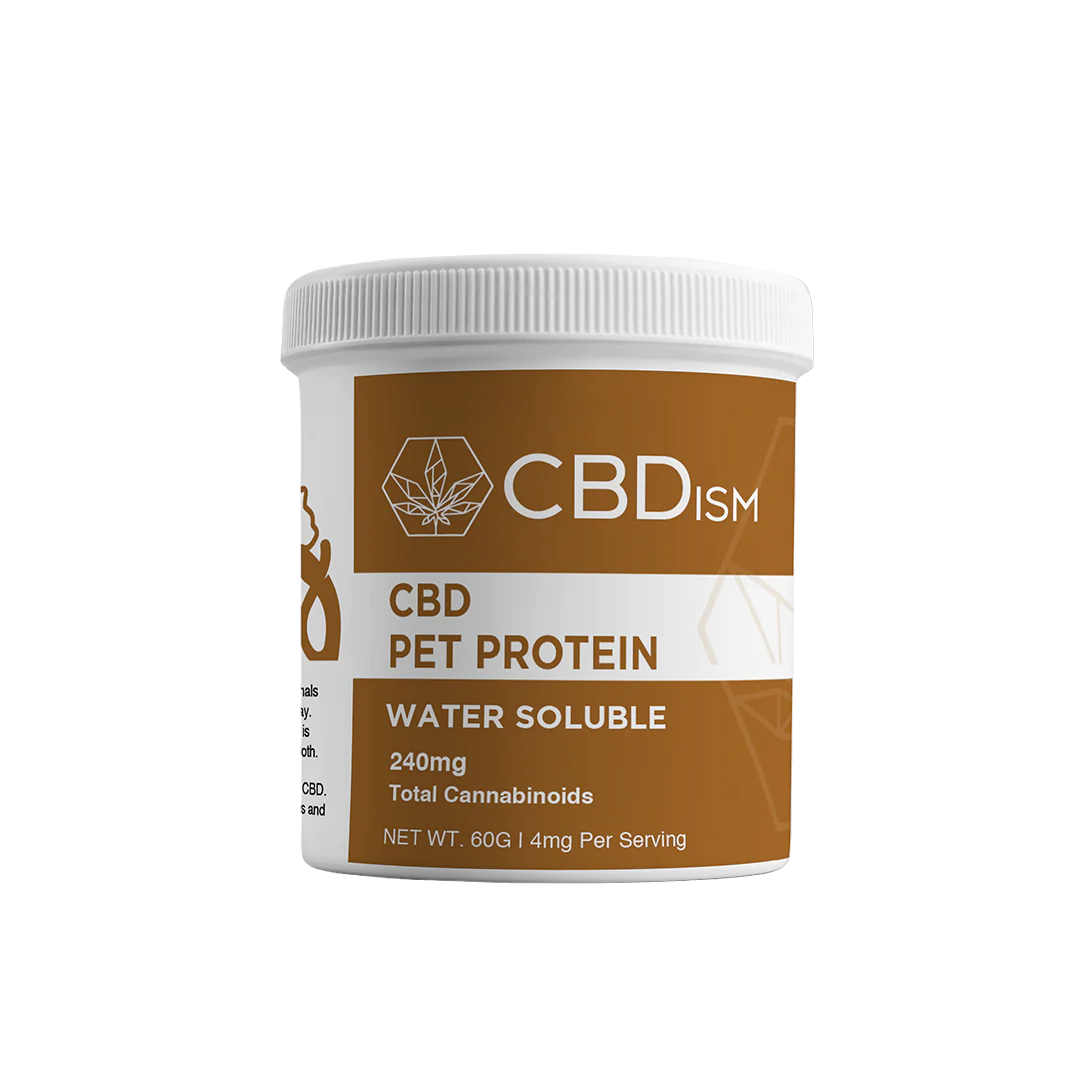D8PG
CBDism | WILD ALASKAN SALMON ORGANIC NANO CBD PET PROTEIN
CBDism | WILD ALASKAN SALMON ORGANIC NANO CBD PET PROTEIN
Couldn't load pickup availability
WILD ALASKAN SALMON ORGANIC NANO CBD PET PROTEIN
COLLAGEN POWDER – MIXES WITH WATER OR FOOD – PROVIDES MULTIPLE SOURCES OF COLLAGEN FROM NON-GMO WILD SALMON
Features:
- Wild Salmon Bone Broth: USA wild-caught cbd protein source
- An excellent source of collagen, glucosamine, chondroitin, and hyaluronic acid.
- Nano Hemp Extract: Full-spectrum hemp grown in Colorado contains naturally occurring cannabinoids (including CBD).
- Water Soluble Nano: Excellent in food or water for pets seeking a balanced diet for your cat or dog
Suggested Daily Use: 1 gram of protein per 10LB
- 1-2 times daily, adjust as needed per veterinarian advice
- 10 mg CBD: Hemp Extract naturally occurring CBD per serving
- Salmon Bone Broth Collagen, CBDism Pure Protein, Organic Wild Alaskan Salmon
- Fish-free taste, plain, anti-gelling, non-flavor, cold water soluble
- Perfect collagen powder for your pet's water or wet food
- Contains essential amino acids and essential fatty acids for their fur coats
- Pet's body weight determines the amount of protein needed for a balanced immune system
- The definitive protein used by beloved pet owners seeking a proper pet's diet
- The products contain no hormones, antibiotics, dyes, or colors, and are non-GMO and non-farm operated.
INGREDIENTS:
240 mg Total Hemp Derived Cannabinoids.
HOW MUCH IS TOO MUCH PROTEIN FOR YOUR PET?
Recently, pet parents have been concerned about too much protein being given to their pets due to the popularity of grain-free and low-carbohydrate foods. A reason for this is the myth that kidney disease can be caused by too much protein in the diet. This myth has been disproven by nutritional research but still persists.
WHAT THE VETERINARIAN PRACTITIONERS THINK...
Veterinary practitioners began feeding low-protein diets to animals suffering from kidney disease to reduce nitrogen levels.
The current trend among holistic veterinarians and even traditional veterinarians is to recommend a higher-quality protein diet rather than low-protein diets for animals with kidney disease. As a result of better quality protein, less waste is produced through digestion, which reduces the workload on the kidneys and nitrogen levels in the body.
PROTEIN NEEDS FOR HEALTHY DOGS & CATS…
Healthy dogs and cats will either excrete excess protein in their urine, use it as energy, or turn it into fat. To prevent a pet from becoming overweight, watch the amount your pet eats when eating higher-protein food. It depends on your cat or dog, their metabolism, activity level, and lifestyle as to how much protein is too much.
Cats that don't play much and spend most of the day on the window sill need fewer calories than those who go up and down the stairs a dozen times a day and chase anything that moves. It is just that they need different quantities of high-quality, high-protein food.
NURSING DOGS OR CATS PROTEIN NEEDS…
Animals that are growing, pregnant or nursing, or working require more protein than normal adult animals. Provided the pet is fed large portion sizes for his size, most premium pet foods contain adequate fats and proteins. Our protein can be added to some meals by adding fresh meat or grain-free wet foods.
Share


